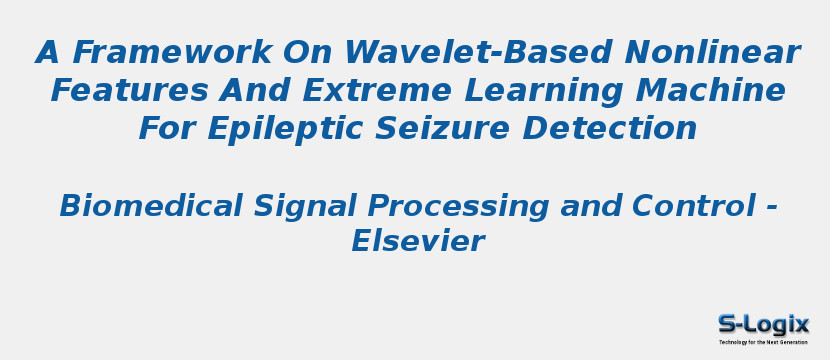Research Area: Machine Learning
Many investigations based on nonlinear methods have been carried out for the research of seizure detection. However, some of these nonlinear measures cannot achieve satisfying performance without considering the basic rhythms of epileptic EEGs.To overcome the defects, this paper proposed a framework on wavelet-based nonlinear features and extreme learning machine (ELM) for the seizure detection. Three nonlinear methods, i.e., approximate entropy (ApEn), sample entropy (SampEn) and recurrence quantification analysis (RQA) were computed from orignal EEG signals and corresponding wavelet decomposed sub-bands separately. The wavelet-based energy was measured as the comparative. Then the combination of sub-band features was fed to ELM and SVM classifier respectively.The decomposed sub-band signals show significant discrimination between interictal and ictal states and the union of sub-band features helps to achieve better detection. All the three nonlinear methods show higher sensitivity than the wavelet-based energy analysis using the proposed framework. The wavelet-based SampEn-ELM detector reaches the best performance with a sensitivity of 92.6% and a false detection rate (FDR) of 0.078. Compared with SVM, the ELM detector is better in terms of detection accuracy and learning efficiency.The decomposition of original signals into sub-bands leads to better identification of seizure events compared with that of the existing nonlinear methods without considering the time–frequency decomposition.The proposed framework achieves not only a high detection accuracy but also a very fast learning speed, which makes it feasible for the further development of the automatic seizure detection system.
Keywords:
Author(s) Name: Lan-Lan Chen, Jian Zhang, Jun-Zhong Zou, Chen-Jie Zhao, Gui-Song Wang
Journal name: Biomedical Signal Processing and Control
Conferrence name:
Publisher name: Elsevier
DOI: 10.1016/j.bspc.2013.11.010
Volume Information: Volume 10, March 2014, Pages 1-10
